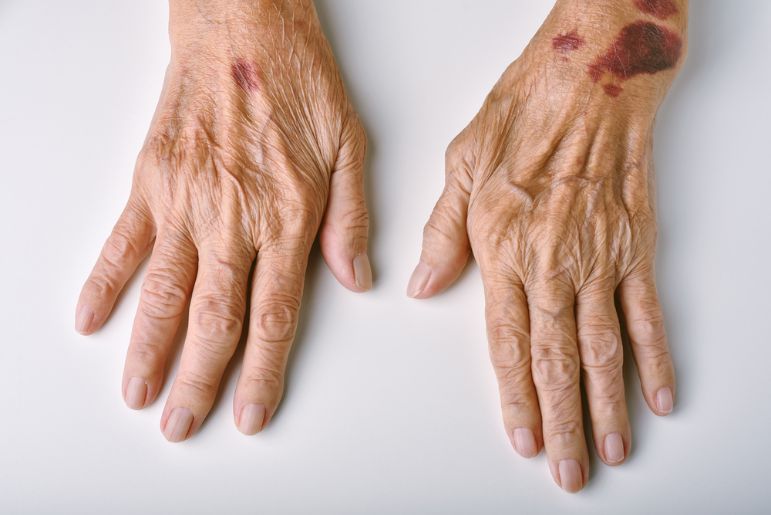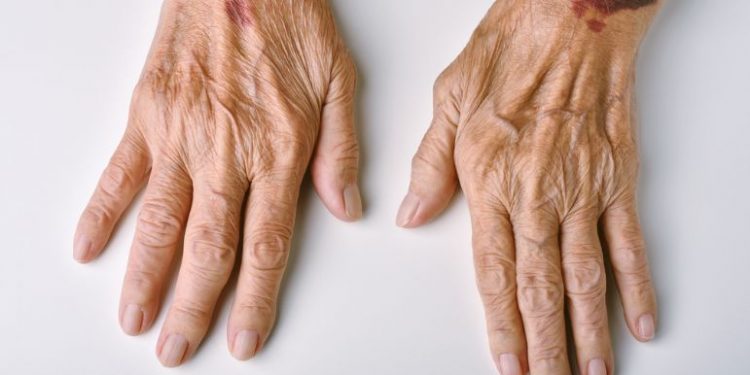Henoch-Schonlein purpura symptoms usually get better on their own within a month, but sometimes people with the disease have more serious problems. Kidney damage can happen in about half of children with Henoch-Schonlein purpura, but most of them recover fully.
Most cases of Henoch-Schonlein purpura are in children between 2 and 6 years of age, with boys more likely to be affected than girls. But adults can also get the condition.
The most common symptom of Henoch-Schonlein purpura is a rash that starts on the backs of the legs, buttocks, and trunk. The rash looks like small red or purple spots that change color (purpura). It may be painful and tender, and it is usually symmetrical.
Other symptoms can include joint pain and abdominal discomfort. Corticosteroids (such as prednisone) may help relieve these symptoms, but they can have serious side effects and should be used with caution.
In severe cases, a bowel blockage or ruptured bowel can occur, which requires medical treatment. Surgery may be required, as well.
Diagnosis is usually made with a physical exam, blood and urine tests, and a biopsy. The blood test can check the serum IgA level and look for abnormalities in your child’s kidney function. The urine test can also check for protein and blood in the urine.
Your doctor will also look for other signs and symptoms of Henoch-Schonlein purpura. These could include fever, loss of appetite, headaches, swelling in the hands and feet, and abdominal pain.

You will also need to be weighed and measured. Your blood pressure will be checked and you may be asked to have a heart rate test. If a bowel blockage occurs, your doctor will also need to do a colonoscopy.
Henoch-Schonlein purpura can be caused by an autoimmune disorder, where the body’s immune system attacks its own cells and organs. It can be triggered by an upper respiratory infection, an allergic reaction to medicines or food, or exposure to chemicals or cold weather.
The cause of Henoch-Schonlein purpura has not been fully understood. However, it is thought that the body’s immune system can attack certain blood vessels in the body.
This can cause inflammation, which can lead to a rash called vasculitis. Some of these blood vessels may then leak into the joints, intestines, and kidneys.
In most people with Henoch-Schonlein purpura, the rash clears up on its own in about a month. Other symptoms, such as pain and abdominal discomfort, can last for longer.
Your doctor may refer you to a specialist. This person might be a doctor who specializes in diseases of the kidneys, such as a nephrologist. They will perform blood and urine tests, and might do a urodynamic test, which measures the movement of water in your kidneys.
The most serious complication of Henoch-Schonlein purpura in adults is kidney failure. This can cause serious problems and lead to death. But it is rare. About a quarter of people who have HSP have mild kidney problems, and another 15 percent are left with subtle abnormalities in their urine tests.









